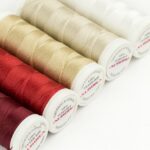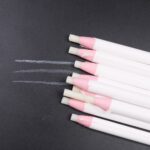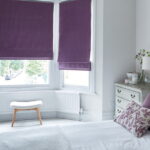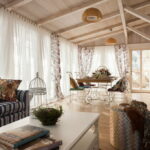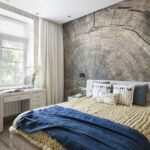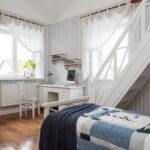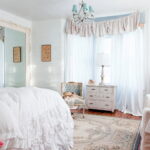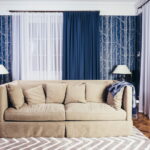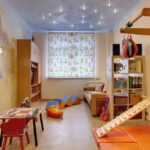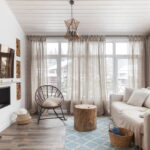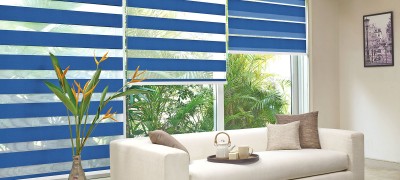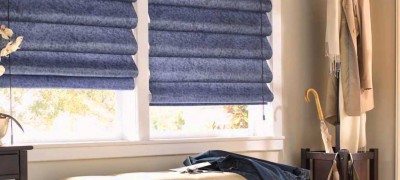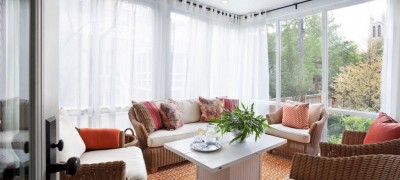Sewing curtains with your own hands
Sewing curtains with your own hands into the house is a fairly simple process that anyone with minimal knowledge and skills in cutting and sewing can handle. You can learn more about how to sew the curtains yourself below.
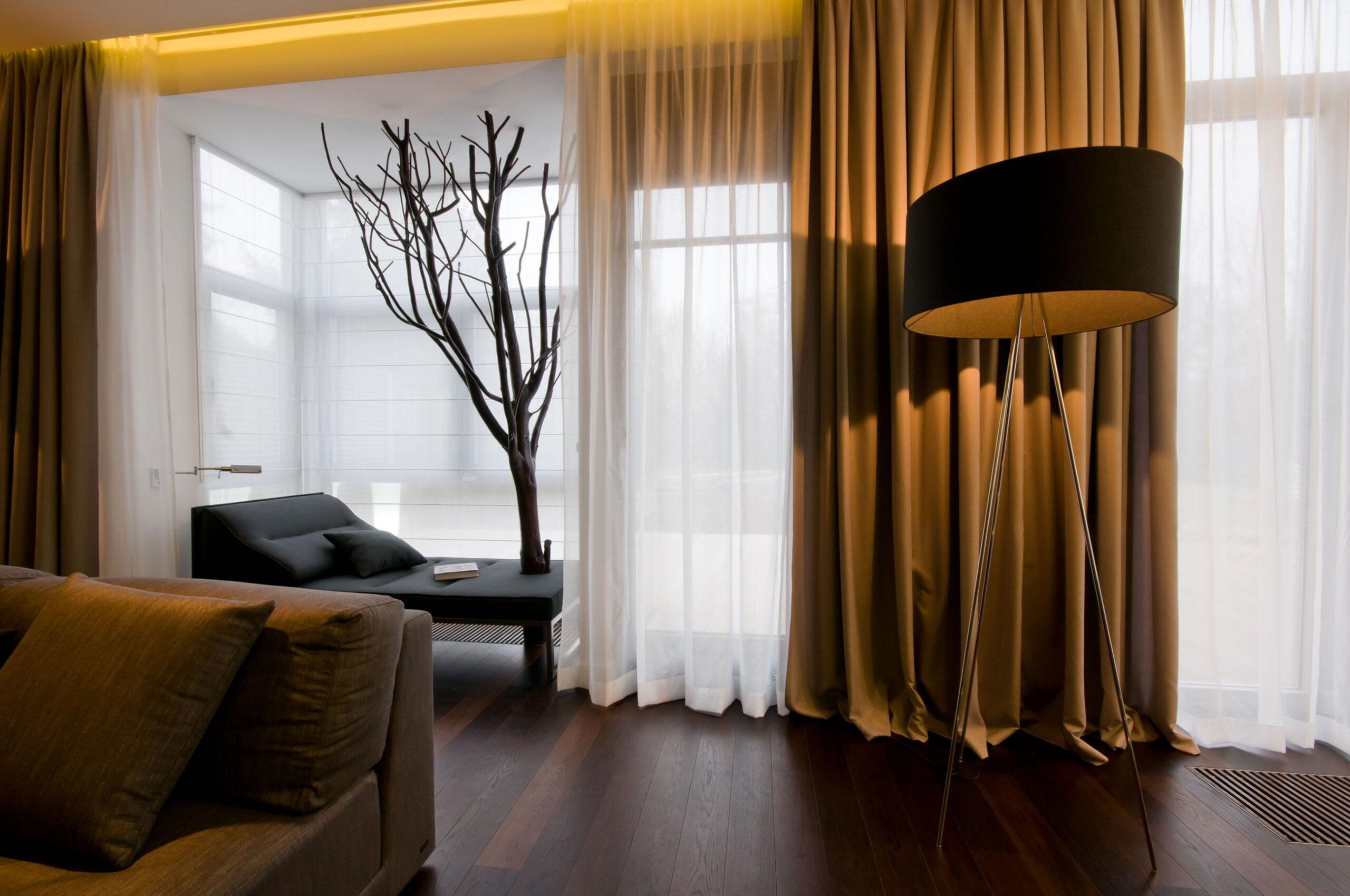
There are the following types of curtains:
French curtains
To sew this option, it is necessary to uniformly form the drapery, correctly calculate the scallops so that the final work is not overtightened or excessively sagging.
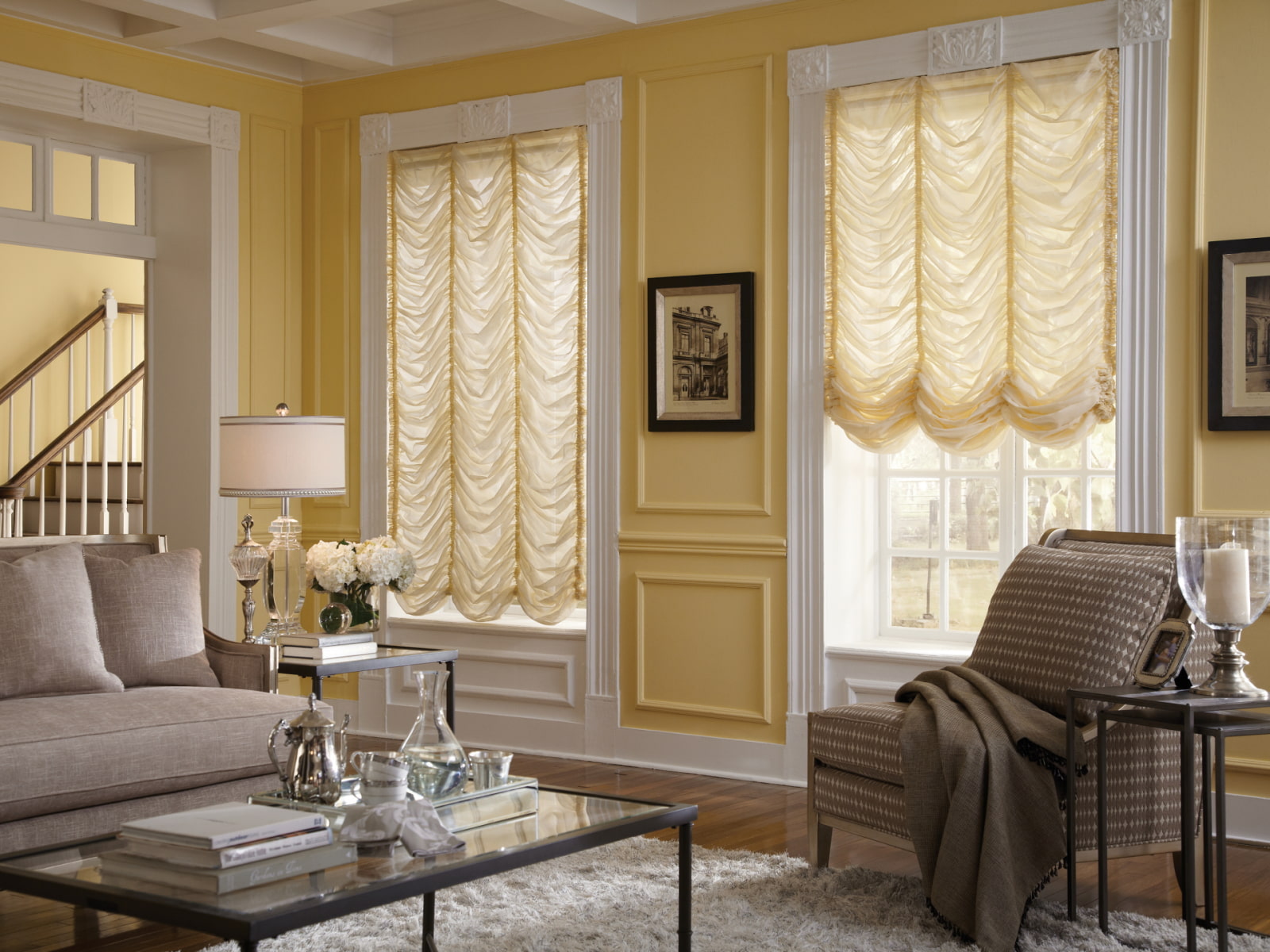
A prerequisite is fixing additional weights at the ends. They are necessary to avoid excessive lifting and inflation in the wind. French curtains must be fixed to a profile cornice designed for lifting mechanisms.
Imperial curtains
On an unrapped piece of material, mark the required length, which depends on the model of the finished curtain.
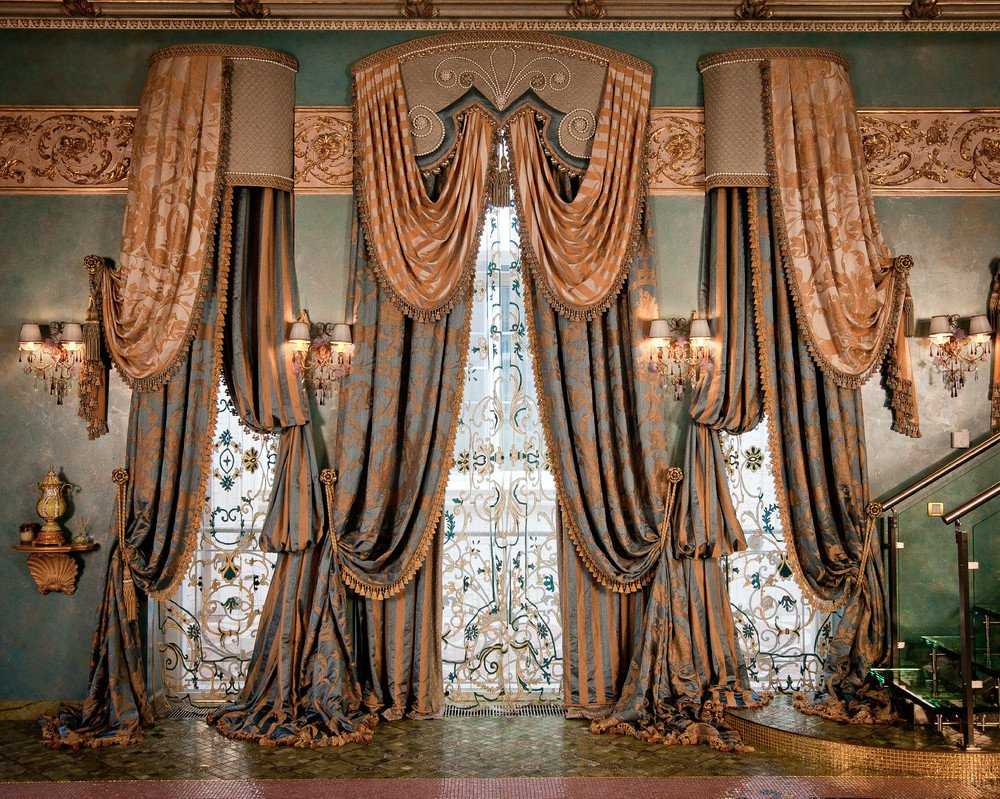
The dart is placed strictly in the middle of the product and vertically at the top between the two main canvases. A feature of this type of curtain is the dependence of the drapery on the method and location of sewing the holding tape.
Roman curtains
The cut of the type in question changes depending on the method of fastening: outside, or along the inner border of the window frame.
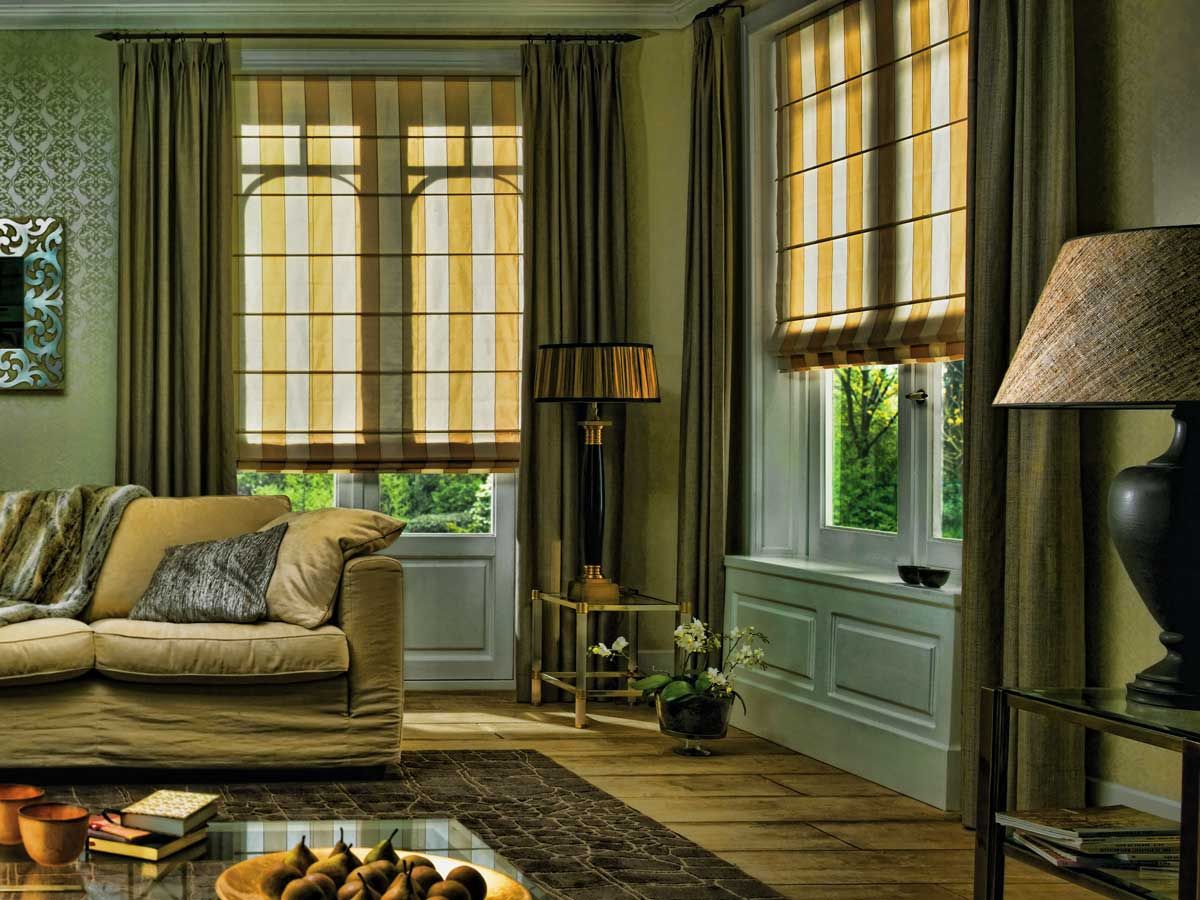
The cut of these curtains is:
- Whole;
- Consisting of a number of canvases.
For this model of curtains, thick fabrics are better suited. When sewing Roman blinds, you must have special accessories in large quantities:
- Weighting bars;
- Velcro tapes;
- Plastic rings;
- Screws;
- Self-tapping screws;
- Kryuchkov.
Austrian curtains
To completely darken the room, these curtains need to be released beyond the boundaries of the window opening by 20 centimeters.
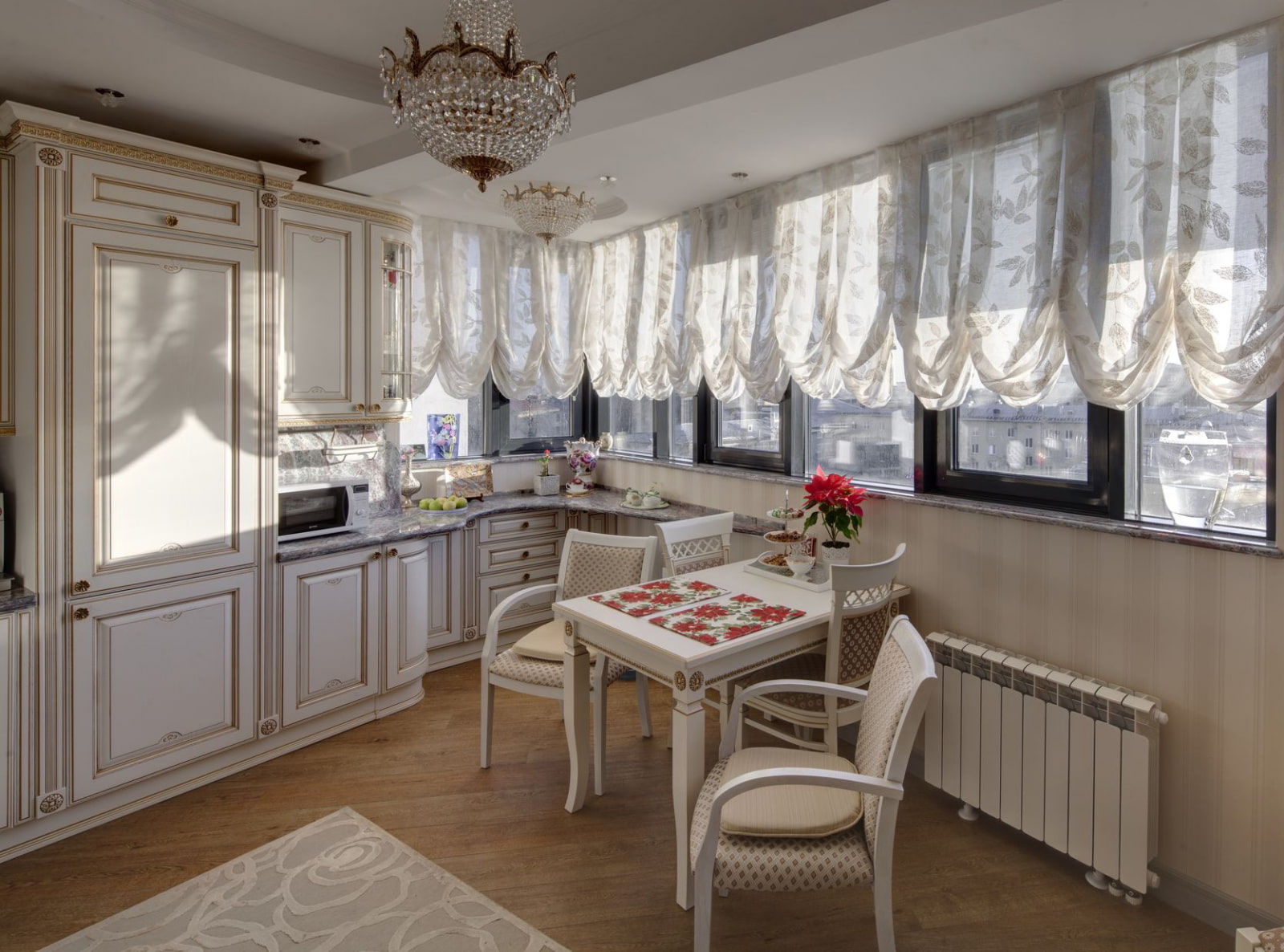
It is also important to take into account the size of the scallops when cutting this model - at least 45 centimeters in width.
How to sew curtains with your own hands (also for a beginner)
Curtains are an integral part of the interior in any home; they are able to add warmth and comfort to the home space. Today the home goods market is replete with a variety of colors and shapes of window curtains. However, it is possible to make curtains yourself.
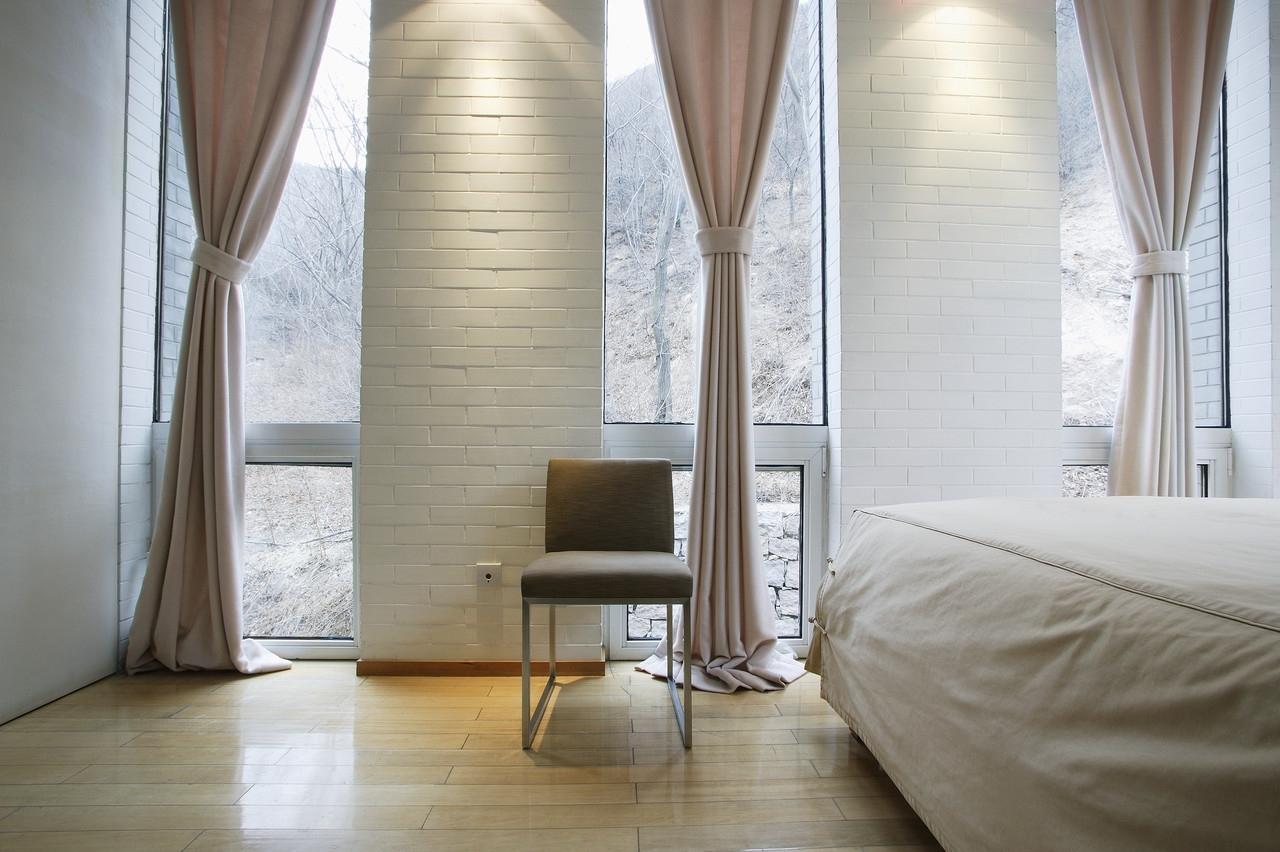
In the vastness of the Internet, you can see a large number of photo examples of homemade beautiful and simple curtains. It is enough to choose a suitable model and start manufacturing. It may be more energy intensive, but you can be sure that your own handmade curtains will be unique.Even a novice seamstress can handle the sewing technology, you just need to stock up on determination, imagination and a little skill in cutting and sewing.
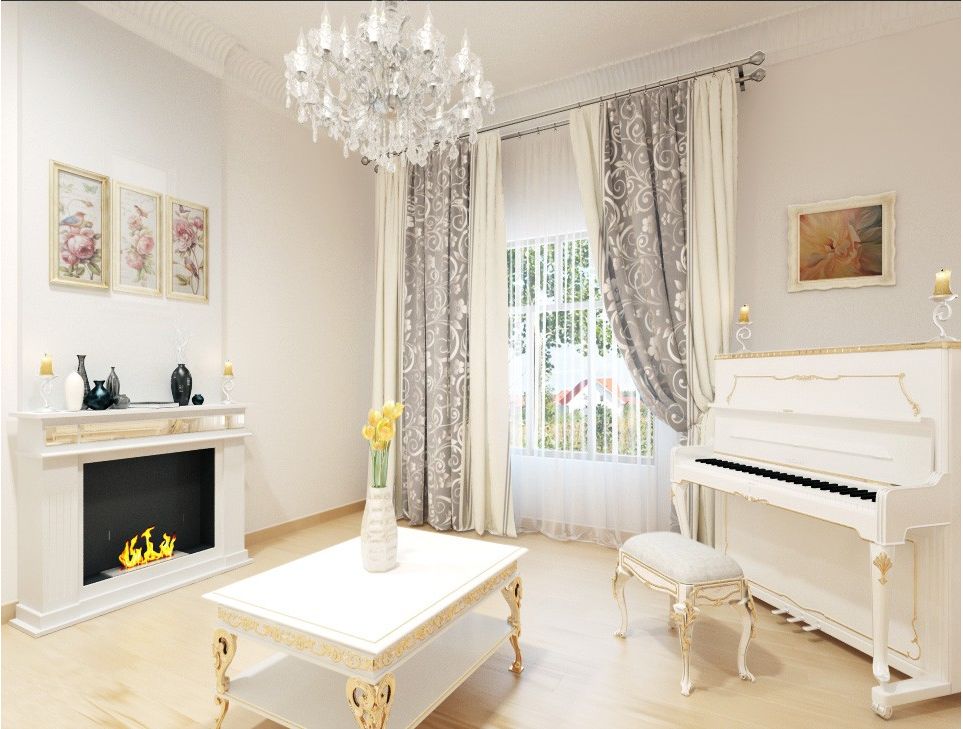
Choice of design and color
The colors and designs of curtains are not only part of the mood in the interior, but also demonstrate the taste of the hostess. Changing the color and decor of the curtains is capable of shading the curtains to bring changes to the space of the house.
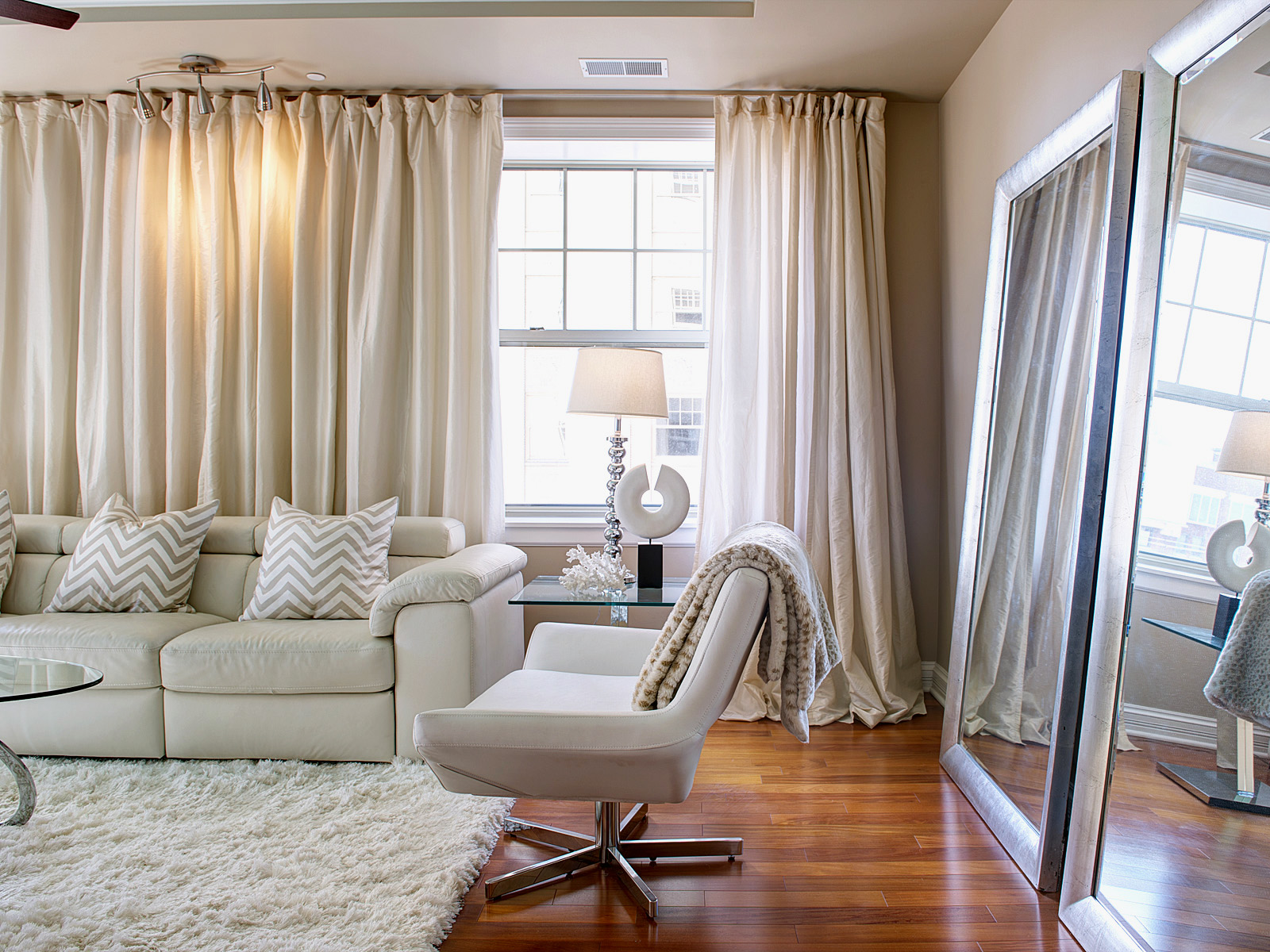
There are the following instructions for choosing the color and design of curtains.
- The softness of the transitions. Compliance with the harmony of color transitions and the combination of the color scheme of curtains with the rest of the space and interior elements.
- Brightness of contrasts. Gives the interior a note of boldness and expressiveness. It is better to combine pure shades, such as black and white, blue and red. You can also combine colors from a softened palette: chocolate and ivory. Shades depend on the purpose of the space.
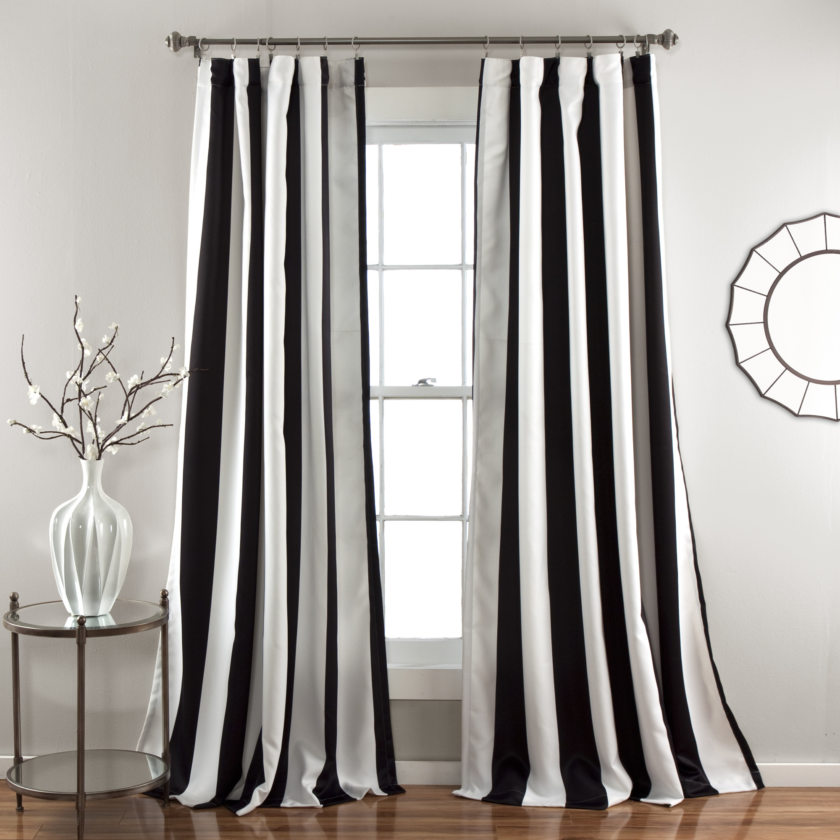
In order to avoid shrinkage of the curtain and its subsequent deformation in the finished product - wash and steam the fabric before work. - Matching curtains with pieces of furniture. You can create a contrast with the color of the furniture when combined with wallpaper and vice versa. It is also possible to create more complex tricolor compositions popular in minimalism.
- Matching curtains with interior textiles. You can sew curtains from the same material as decorative pillows or bedspreads, however, such precision is not required, you can harmonize them through color combinations.
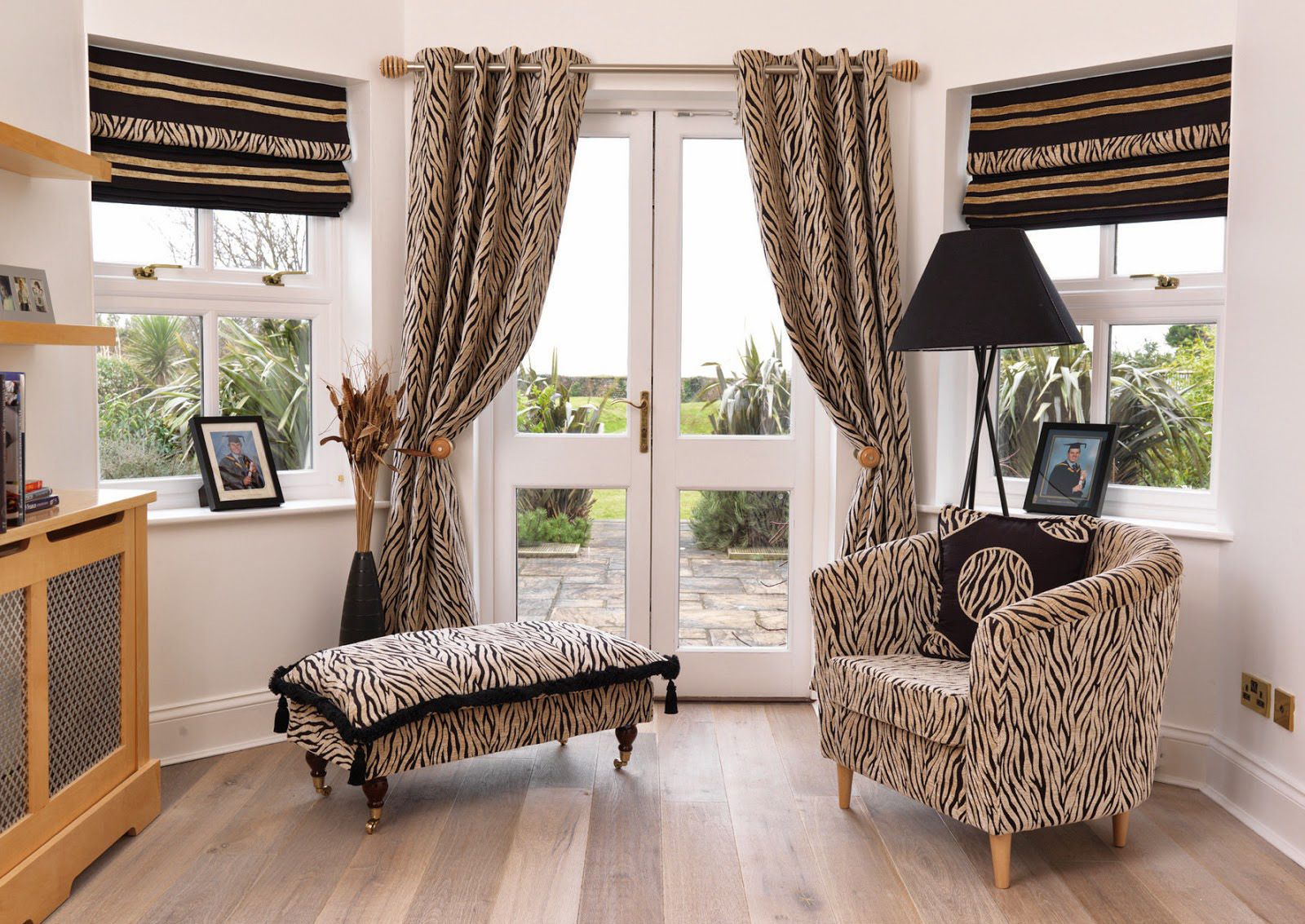
To determine the exact length of future curtains and curtains, a cornice must be installed. - Matching the color of the curtains with the style of the interior. For a Victorian-style interior, curtains in wine or burgundy shades are suitable; black-white-red curtains are considered a model of a minimalist interior.
- Matching the color of the curtains with the texture of the fabric. Thick fabrics, fabrics made of satin, with gloss make the colors brighter and more saturated, and curtains made of thin and light fabrics give the product of any color weightlessness.
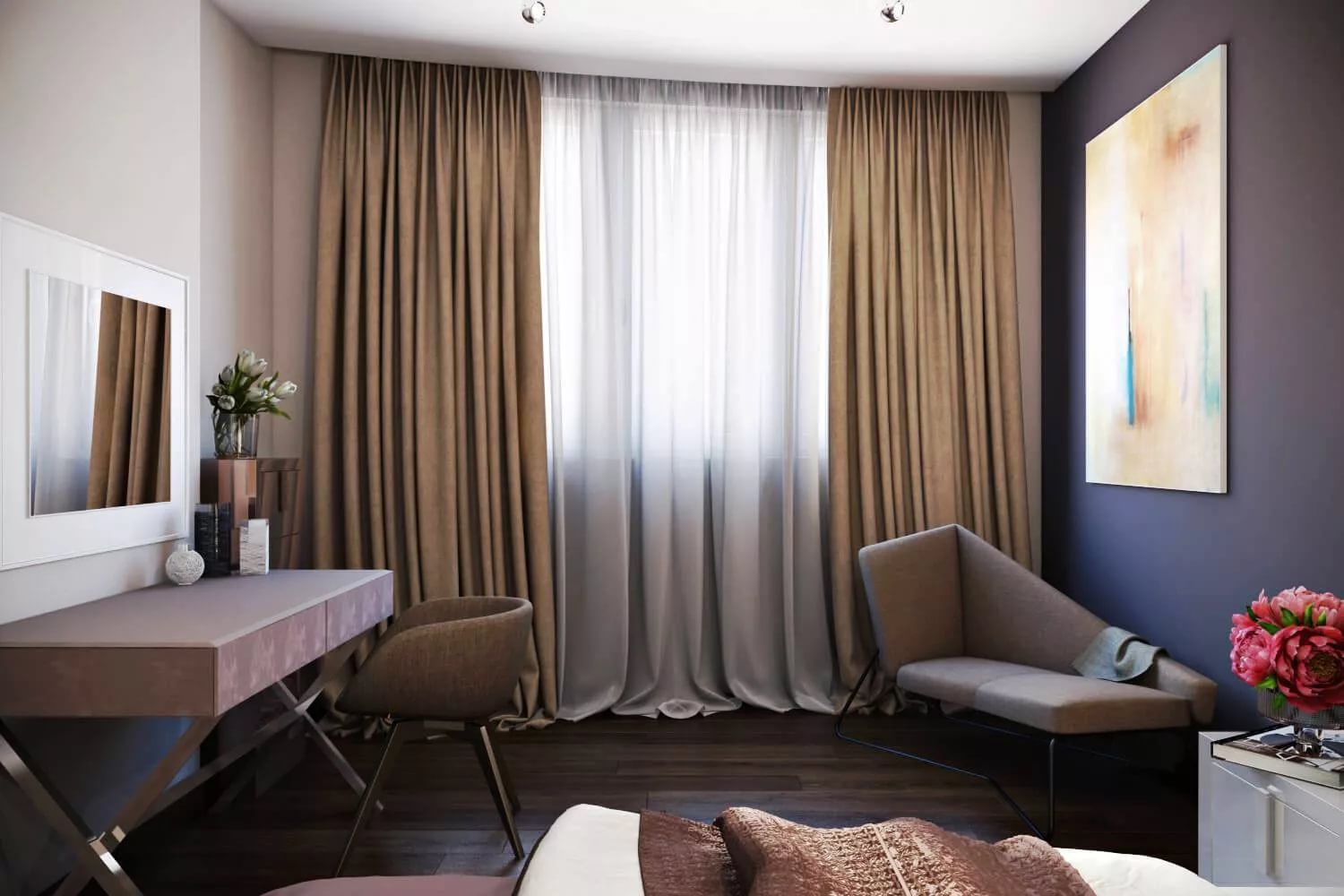
To create curtains with your own hands, it is better to use these types of fabrics: cotton, jacquard, linen, velvet, organza. - Bringing mood to a room with color. Pastels help to relax, rich black and red shades add passion, white - will bring solemnity to the room, and bright ones contribute to productive work and good mood.
Selection of fabric and the right tools
For different rooms, it is important to choose suitable materials for curtains, not only in color, but also in texture, and it is also worth considering the purpose that they will fulfill in the room.
A classic living room or hall will require a large amount of dense material that can protect the space from sunlight.
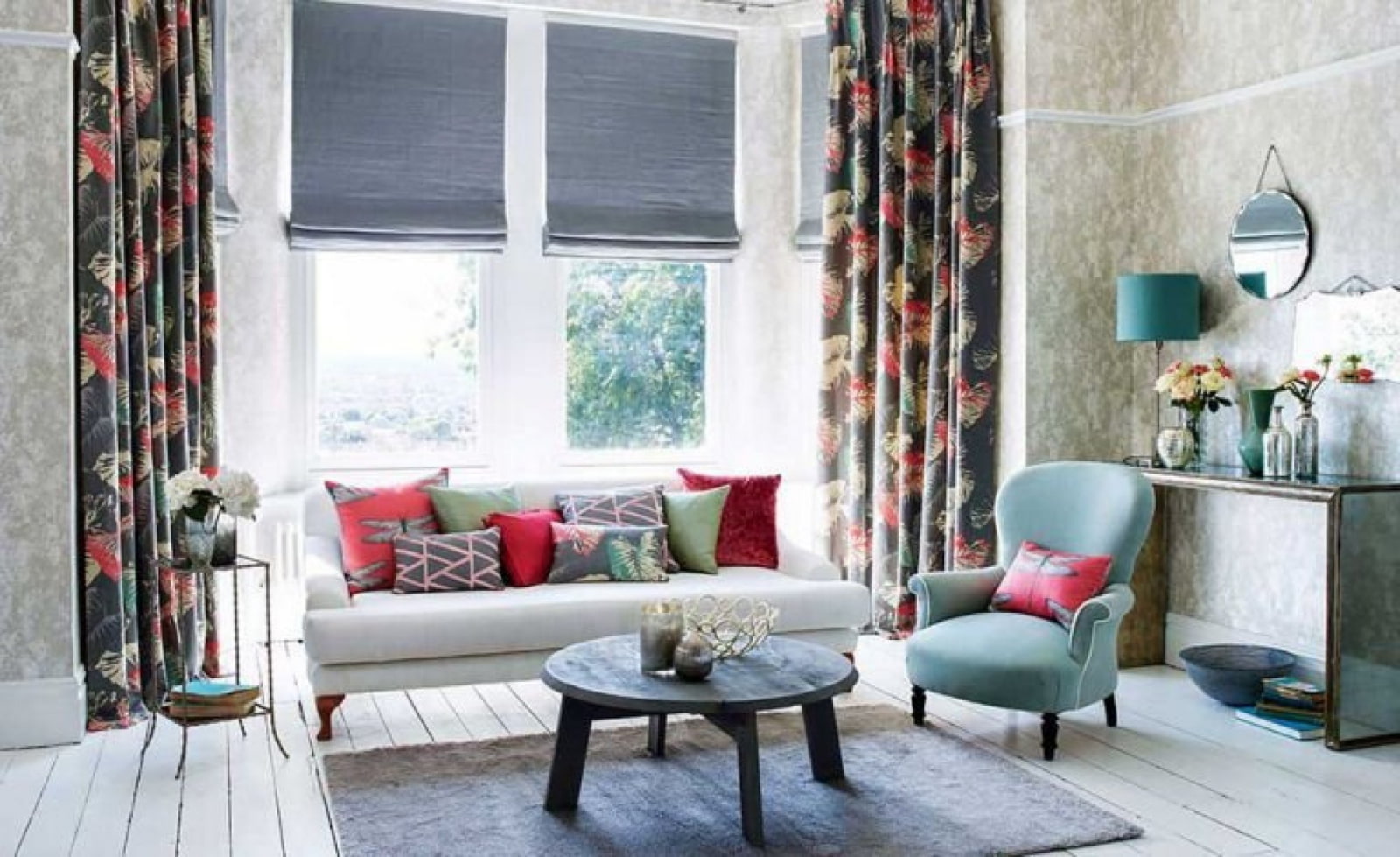
It is better to hang curtains in soft pastel colors in the bedroom to maintain an intimate atmosphere.
Curtains that do not reach the floor made of non-marking textiles are suitable for the kitchen.
In the nursery, curtains in pleasant pastel shades, perhaps with a pattern, are good enough to ensure a restful sleep both during the day and at night.
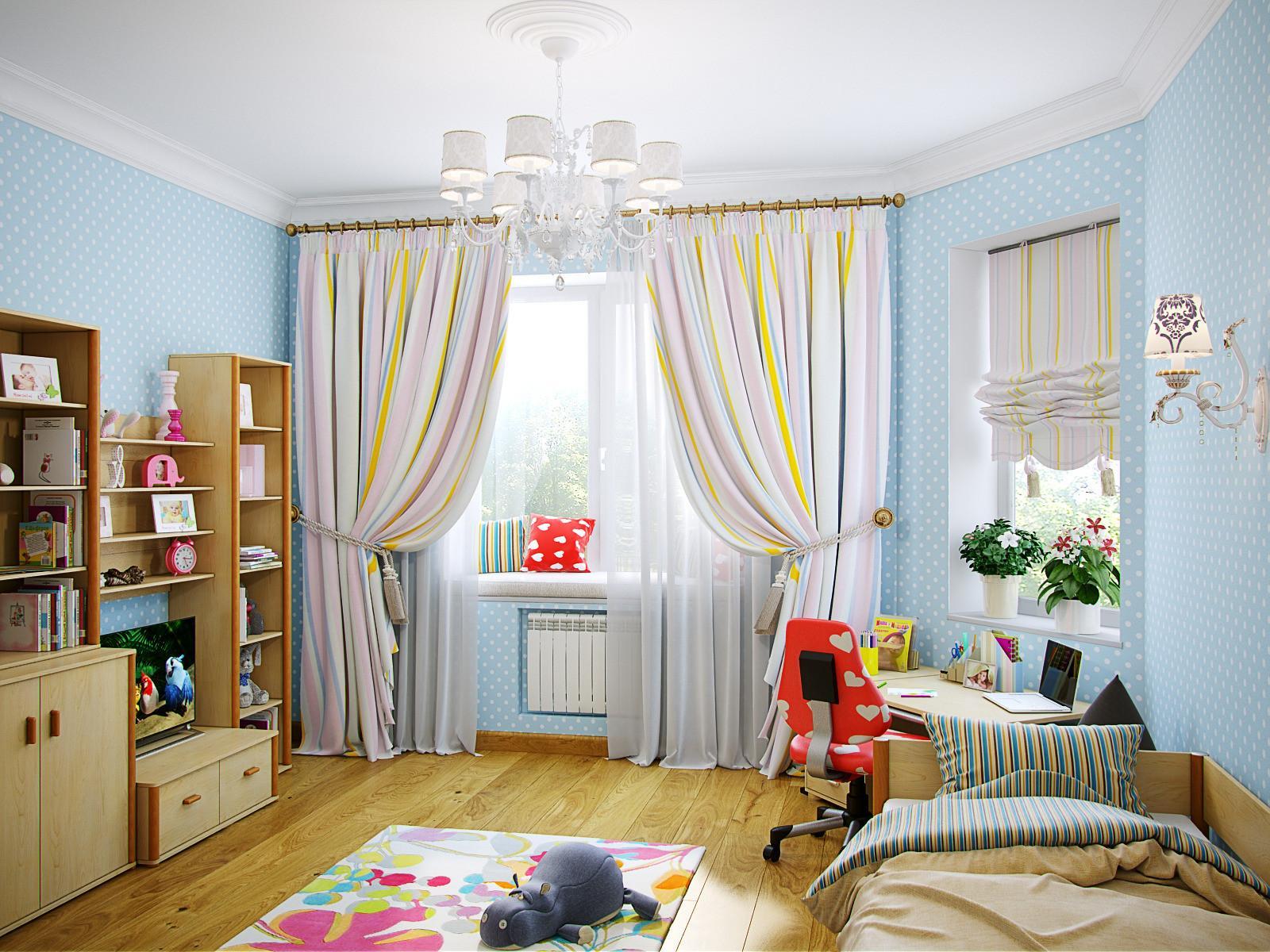
After choosing the material, you can start preparing the necessary tools:
- Sewing machine;
- Stationery scissors;
- Sewing thread;
- Meters;
- Pencil or chalk.
Sizing and creating patterns (nuances of measurements)
A step-by-step plan on how to hem night curtains at home:
- First you need to choose the required length:
- To the windowsill (1-1.5 centimeters higher)
- Below the windowsill (10 centimeters lower);
- Floor-length curtains (1-1.5 centimeters to the floor).
- The length is calculated from the hooks or loops of the cornice.
- Width calculation: (Curtain rod length × 2) +20, in centimeters. If the curtain consists of two canvases, divide by two.
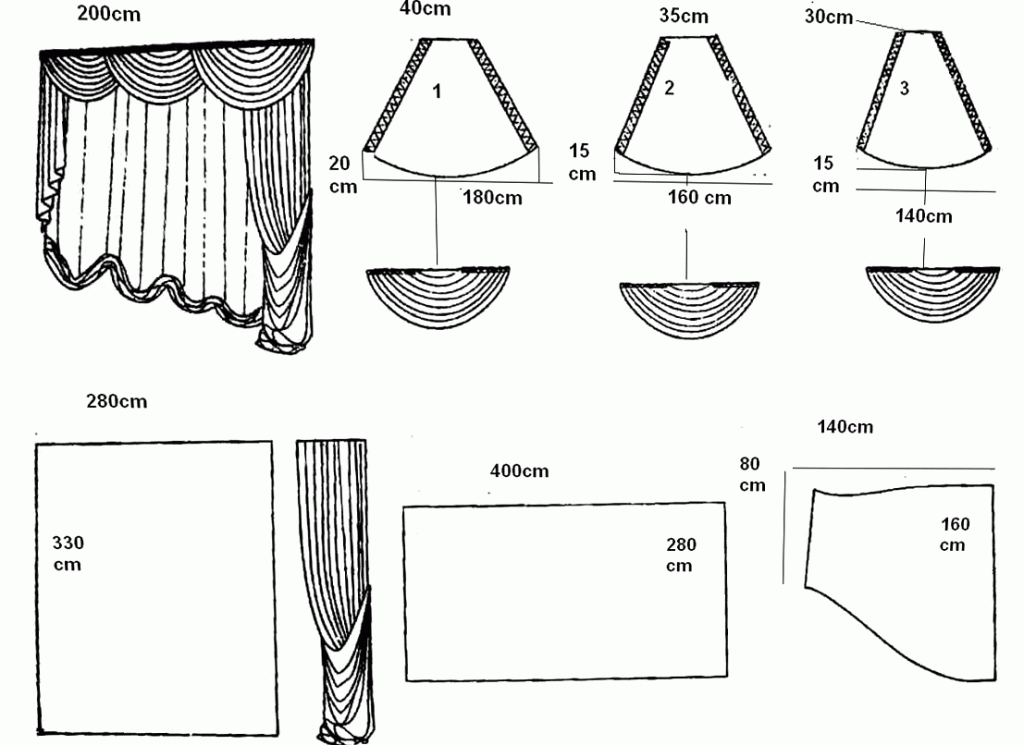
The process of sewing curtains
- When all measurements are completed, you can apply patterns to the fabric, also do not forget about the allowances:
- Lower by 5 centimeters;
- Side by 1-1.5 centimeters;
- The top is equal to the width of the tape + 2 centimeters;
- Cut out the received patterns of future curtains for self-sewing;
- Mark the location of the loops on the canvases: an indent of 3 centimeters from the edges, 5 centimeters per loop, 16 centimeters between them and repeat again.
- The prepared material is folded along the allowance line and fixed with pins;
- Sewn with a sewing machine.
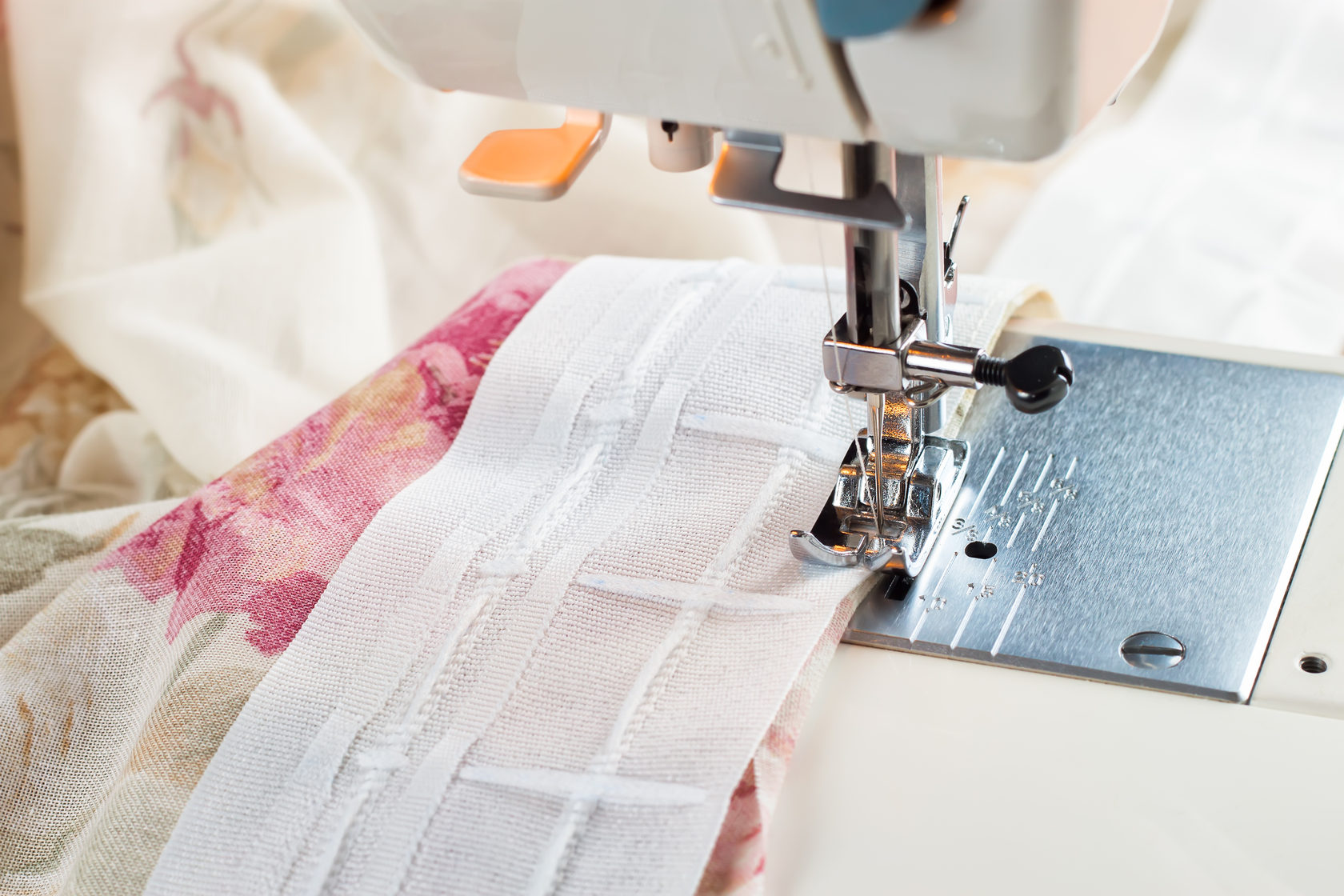
Decor features
With the help of spectacular decorative elements, curtains can be given a special charm.
- Fringe is a braid decorated with bugles, beads, tassels. Looks good on curtains made of thick fabric, can be located on the bottom of the sides of the curtains. Gives solemnity and comfort to the room.
- Bow folds of various depths are formed when the material is folded. In this case, the folds are in opposite sides and at equal intervals with each other.
- Shuttlecocks will add festivity to the room;
- Ruffles, frills will create a romantic atmosphere in the room, in addition, they are good for the kitchen, bedroom or nursery - they add coziness to the space.
- Puffs - patterns from folds, add luxury to the room. Fits perfectly into any space.
- Accessories for curtains in the form:
- Butterflies (fabric, plastic, metal, glass, beads);
- Flowers;
- Decor elements in the form:
- Side holders;
- Decorative cords with tassels;
- Bows.
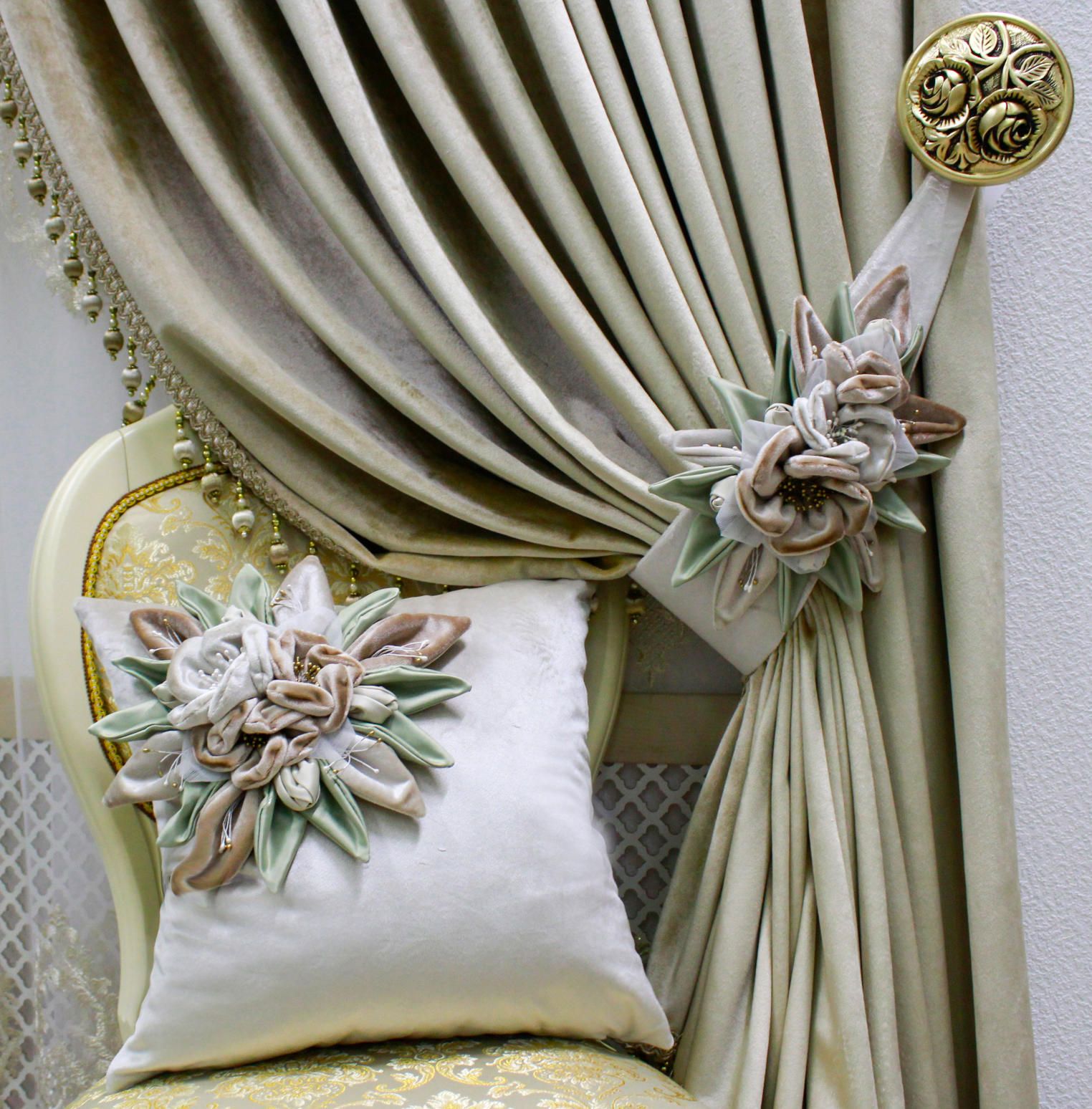
How to avoid mistakes when sewing curtains
When sewing curtains, the following errors are possible:
- Tightening of threads when sewing materials of different density;
- Curved edge processing. To eliminate this error, it is enough to iron the material before sewing;
- Shrinkage of fabric when sewing on tape. It is important to steam the loose braid thoroughly before flashing.
- The use of chalk for the marking scheme, it promotes the erasure of delicate fabrics and is poorly washed;
- Poor adhesion of dublerin, it is important to moisten it with water in advance, at least an hour before gluing. It is glued more reliably when steamed with an iron.
- Drying of adhesive elements, they cannot be stored for a long time;
- Overheating and melting of organza. It is necessary to iron the seams in a delicate mode, in addition, this way it will lie much more neatly;
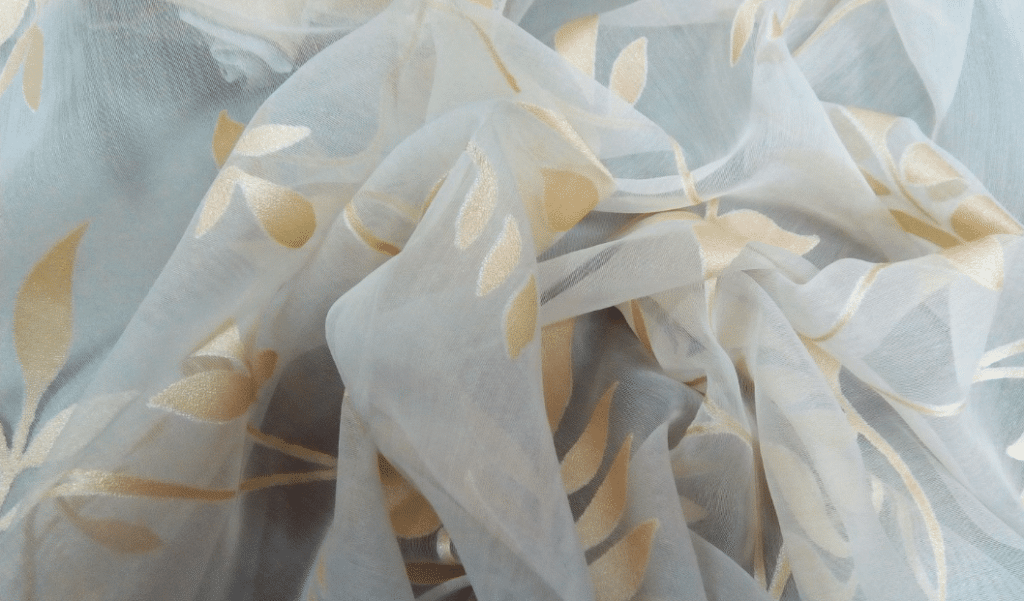
Crease of fine fabrics with mixed stitching. To avoid this, put a thin fabric on top of a thicker one.
Video: how to sew curtains with your own hands






